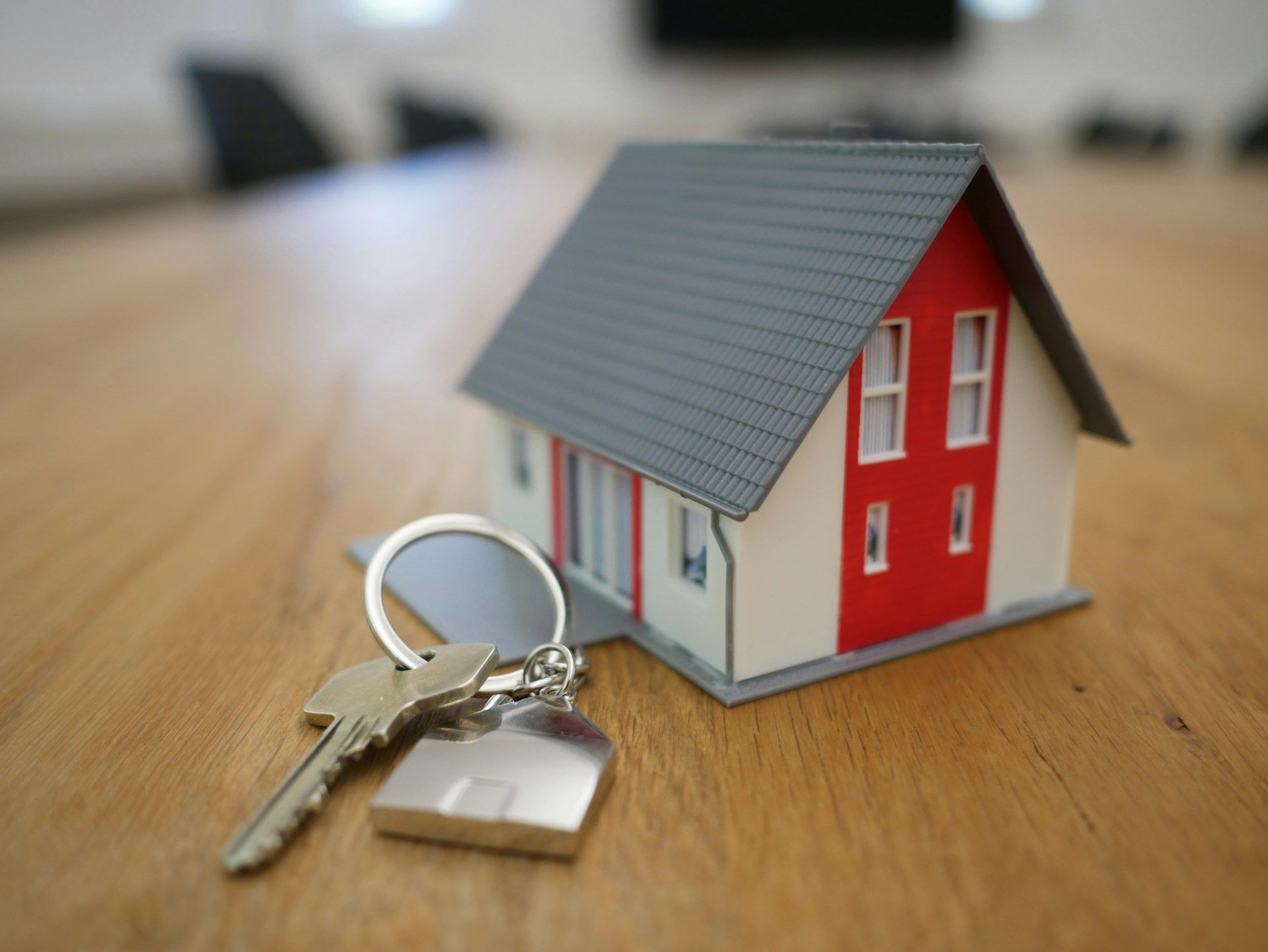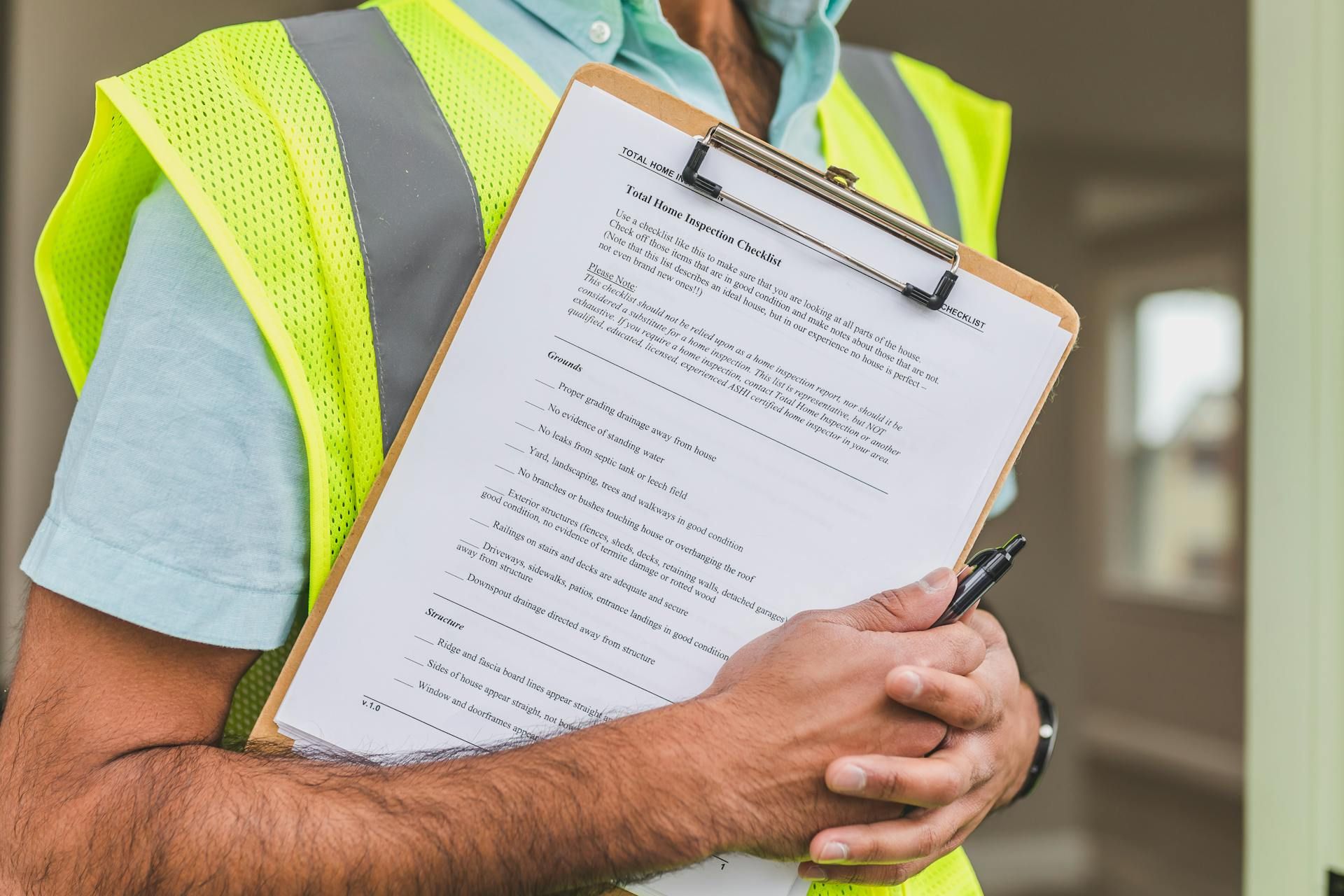Cost of Selling a Property at Auction - How Much Does It Cost? - Complete Guide
Selling a property at auction is becoming an increasingly popular route in the UK, especially for those looking for a faster, more transparent sale.
It eliminates lengthy negotiations, reduces the risk of fall-throughs, and often attracts serious buyers ready to commit. Yet one of the first questions sellers ask is: what’s the cost of selling a house at auction?
Understanding the full costs is crucial before deciding whether it’s the right path for you.
While auctions can save time and deliver fair market value, they do involve specific fees that vary depending on the auction house, location, and property type.
From entry costs and marketing expenses to commission rates and legal documentation, each element contributes to your overall selling cost.
Below, we’ll break down these costs clearly so you can plan ahead and avoid any surprises on the day of the auction.

How Much Will It Cost Me to Sell My Property at Auction in the UK?
Auction fees are typically divided into two main categories: entry or setup fees and commission fees.
Together, they form the basis of what you’ll pay to the auctioneer once your property is listed and sold.
The entry fee (sometimes called a listing or administration fee) covers the cost of preparing your property for auction. This includes professional photography, online marketing, catalogue placement, and sometimes open house viewings.
The amount can range from £200 to £500 for online auctions, while full-service auction houses might charge upwards of £1,000, especially if extensive marketing or high-end brochures are included.
The commission fee is the main cost of using an auctioneer. It’s usually a percentage of the final sale price, typically between 1.5% and 3% + VAT, although some auction houses charge a flat rate instead.
This fee is only payable once your property successfully sells, and in many cases, you can negotiate this rate based on your property’s value or expected demand.
You’ll also need to budget for legal pack preparation, which includes documents such as the title deed, searches, property information forms, and any leasehold details. This can cost anywhere from £300 to £600, depending on your solicitor or conveyancer.
While these costs might seem significant upfront, the overall cost of selling a house at auction can still be competitive when compared to the expenses and delays of a traditional sale.
Auctions often attract multiple bidders, potentially driving the price higher and offsetting the costs through a quicker, more certain sale.
Can I Pass the Cost on to the Buyer?
Yes, in many cases you can. A growing number of auction houses now offer sellers the option to shift the auction costs to the buyer through what’s known as a buyer’s premium or reservation fee.
Under this arrangement, the buyer pays a set fee, typically between 2% and 4% of the purchase price, or a minimum of around £5,000 plus VAT, directly to the auctioneer once the property is sold.
This fee covers the auctioneer’s commission, allowing the seller to receive the full hammer price without deductions.
However, while this may seem ideal, it’s worth considering how this structure might influence bidding behaviour.
Some buyers may factor the additional fee into their bidding limit, potentially lowering their maximum offer.
That said, many modern online auctions have normalised this model, and it rarely deters serious bidders.
Always confirm the fee structure before listing your property. Some auctioneers give you a choice between paying the commission yourself or allowing the buyer to absorb it.
Your decision will depend on your selling priorities, whether you’re focused on achieving the highest sale price or maximising your net proceeds after costs.
Always Negotiate Commission Fees with the Auctioneer
One of the most important steps before committing to an auction house is negotiating the commission fee.
Not all sellers realise that these rates are rarely fixed. Auctioneers often have flexibility to adjust their fees, depending on your property type, value, and how confident they are about attracting bidders.
If you’re selling a high-value home, commercial building, or land with development potential, you may be able to negotiate a lower commission rate because the auctioneer still benefits from a significant return even at a smaller percentage.
Conversely, for lower-value or niche properties, a slightly higher rate may apply to cover the cost of marketing and administration.
Be upfront about your expectations and ask for a detailed breakdown of what’s included in the commission. Some auctioneers also offer no sale, no fee terms, which means you only pay if your property sells.
This can be especially useful for sellers who want the assurance that they won’t lose money if bidding doesn’t meet the reserve price.
Negotiation also extends to marketing extras. If professional photography or extended advertising is included, make sure you understand whether these are part of the standard package or added as optional costs.
A transparent conversation early on helps prevent misunderstandings later in the process.

All of the Different Types of Selling Fees
When selling at auction, it helps to know what each cost represents and how it contributes to the process.
While fee structures vary, most auction houses include a combination of the following:
- Entry or Listing Fee: Covers photography, catalogue entry, and marketing.
- Commission Fee: A percentage of the final sale price, often negotiable.
- Legal Pack Costs: Paid to your solicitor for preparing the necessary documents.
- Marketing Upgrades: Optional costs for premium advertising, featured listings, or social media promotions.
- Withdrawal Fee: Charged if you remove your property from the auction after listing.
- Buyer’s Premium or Reservation Fee: Paid by the buyer, depending on the auction’s structure.
- VAT: Always check whether quoted fees include or exclude VAT, as this can significantly affect the total amount due.
Each auction house operates slightly differently, so reviewing the fine print is essential.
Some charge lower entry fees but higher commissions, while others reverse this. Understanding these distinctions helps you choose the option that delivers the best return for your specific circumstances.
Entry and Marketing Fee Explained
Before your property can appear at auction, it must be listed and marketed properly. That’s where the entry and marketing fee comes in.
These fees cover the administrative and promotional work that goes into attracting buyers and showcasing your property to the widest audience possible.
Marketing is one of the most valuable parts of the auction process. A strong marketing campaign increases visibility, builds competition among buyers, and can ultimately help drive up the sale price.
For this reason, many sellers view the entry and marketing fee as an investment rather than a simple cost.
Most auction houses include a standard level of marketing within their base package, which might involve photography, an online listing, and placement in the auction catalogue.
However, sellers can often upgrade their marketing package to include extras such as drone photography, video tours, social media advertising, and premium placement on property portals.
How Much Are the Entry Fees and Marketing Fees?
The exact amount varies between auction houses, but entry and marketing fees typically start at around £200 to £500 for a standard listing.
For premium packages that include enhanced exposure, expect to pay anywhere from £800 to £1,500.
Some online auction platforms include marketing costs in their commission structure, while others charge them separately as an upfront fee. It’s worth clarifying this before signing an agreement.
It’s also important to note that most entry fees are non-refundable. If your property doesn’t sell or you withdraw it before the auction, you’ll likely still be responsible for this cost.
Always check your contract carefully to confirm whether the fee is due on listing or only after a successful sale.
Legal Pack Explained
The legal pack is one of the most essential components of the auction process. It provides prospective buyers with all the information they need to make an informed decision before bidding.
The pack is prepared by your solicitor or conveyancer and must be ready before the auction listing goes live.
A comprehensive legal pack typically includes the property title, Land Registry documents, Energy Performance Certificate (EPC), local authority searches, property information forms, and any relevant leasehold or tenancy details.
For leasehold properties, this will also include service charge statements and ground rent information.
The purpose of the legal pack is transparency. Buyers want to know exactly what they’re bidding on, and having all the details available upfront builds trust and helps prevent issues later in the process.
Incomplete or inaccurate legal packs can put off potential bidders and reduce your chances of achieving a strong sale price.

How Much Is the Legal Pack Creation Fee?
The cost of preparing a legal pack varies depending on the solicitor and the property’s complexity, but sellers can expect to pay between £300 and £600 on average.
Some solicitors specialising in auction sales may offer a fixed-price service, which can help keep costs predictable.
Certain auction houses have preferred solicitors who can prepare the pack at a discounted rate, so it’s worth asking whether this option is available.
Remember that your legal pack remains valid for future auctions if your property doesn’t sell the first time, so you won’t need to pay again unless updates or new searches are required.
Who Pays for the Survey?
Typically, the buyer pays for any property survey they wish to conduct before bidding.
This allows them to assess the property’s condition and make an informed decision about how much they’re willing to offer.
As the seller, you are not required to arrange or pay for a survey. However, some sellers choose to commission a basic survey or condition report in advance to reassure potential bidders and speed up the sale process.
Providing a recent survey in your listing can also demonstrate transparency and help your property stand out in competitive auctions.
Do I Need a Solicitor to Sell a House at Auction?
While it's not a legal requirement to have a solicitor when selling a property at auction, most auctioneers require a solicitor to sign off on the legal pack before it can be uploaded to their platform.
It is generally good practice for sellers to appoint a solicitor. However, some sellers may choose to remain self-represented for relatively low-value transactions such as the sale of small parcels of land or ground rents, particularly when the legal pack contains only a few standard documents.
That said, self-representation may be unacceptable to the buyer’s solicitor if their professional indemnity insurance prohibits them from exchanging contracts or completing the transfer unless the other party is also legally represented. The seller shall ensure that self-representation is expressly stated in the special conditions of sale and incorporated within the legal pack.
A solicitor acting for a seller in a property auction usually charges for two main areas of work: preparing the legal pack and handling the completion process once the property is sold.
Depending on the solicitor, these fees may vary slightly to reflect the additional coordination with the auctioneer and time required to manage completion within the auction’s strict timeline.
It’s also common for sellers to include a clause in the Special Conditions of Sale requiring the buyer to pay an additional legal fee upon exchange of contracts, helping to offset part of the seller’s legal costs.
Check out our recent articles
- Selling a Property At Auction UK - Complete How-to Guide
- Modern Method of auction
- Haunted houses for sale in the UK
Auction Commission Explained
The auction commission is the fee charged by the auctioneer for successfully selling your property.
It compensates the auction house for hosting, marketing, and managing the sale, including conducting the auction itself.
This is often the largest single fee involved in the auction process, but it only applies if your property sells. The commission is typically deducted from the sale proceeds before funds are transferred to you.
How Much Is the Auction Commission?
Commission fees generally range between 1.5% and 3% + VAT of the final sale price. For example, if your property sells for £250,000, you could pay anywhere between £3,750 and £7,500 plus VAT, depending on your auctioneer’s rate.
As mentioned earlier, these rates are usually negotiable. High-value properties or homes in high-demand areas can sometimes attract reduced commission rates, while lower-value or hard-to-sell properties might incur slightly higher fees.
Always request a written breakdown of costs before agreeing to list your property.
Some auctioneers include marketing and admin costs in their commission, while others treat these as separate charges. Understanding this distinction helps you avoid hidden costs and compare auctioneers fairly.
Property Survey Costs
While sellers are not obliged to provide a survey, buyers often choose to commission one before bidding, especially if the property is older or in need of refurbishment. Survey costs vary depending on the type and level of inspection.
A basic condition report might cost around £300, while a homebuyer’s report (which includes more detail) could range from £400 to £700. A full structural survey, often used for older or unique buildings, can cost upwards of £1,000.
If you’re selling, offering a recent survey can make your property more attractive by reducing uncertainty for buyers. However, it’s not a requirement, and most sellers rely on buyers to arrange their own inspections.

What Happens If the Sale Falls Through? What Are the Costs?
In the rare event that your sale falls through after the auction, the financial implications depend on the auction type and terms.
In a traditional auction, once the hammer falls, the sale is legally binding. If the buyer fails to complete, they lose their deposit, which typically equals 10% of the purchase price. You may also have grounds to claim additional compensation for losses incurred.
In the modern method of auction, the sale isn’t legally binding until contracts are exchanged.
However, the buyer usually pays a non-refundable reservation fee immediately after winning the bid. If they withdraw later, this fee is forfeited, which helps offset the seller’s inconvenience and lost marketing costs.
If the sale falls through for other reasons, such as not meeting the reserve price or being withdrawn before the auction, you might still be liable for entry and marketing fees.
Always confirm your auctioneer’s cancellation or withdrawal policy before signing.
What Are the Fees if I Choose Not to Sell via Auction?
If you decide not to sell through auction, you’ll still face several traditional selling costs.
Estate agents typically charge a commission of 1% to 3% + VAT of the sale price, along with conveyancing fees that can range between £800 and £1,500.
You might also pay for marketing extras such as professional photography, listings on property portals, or “For Sale” boards.
Unlike auction sales, where much of the cost structure is performance-based, private sales can involve longer timelines and less certainty. While upfront costs are lower, the process can take months, with no guarantee of completion.
Let’s Compare the Cost of Selling a House at Auction vs. Selling Privately
Selling by auction and selling privately both come with costs, but their structures and benefits differ.
Auctions offer speed and transparency, while private sales may provide more flexibility in negotiation.
| Cost Type | Selling at Auction | Selling Privately |
|---|---|---|
| 💰 Entry & Marketing Fees | £200 – £1,500 (non-refundable) | Usually included in agent commission |
| 📄 Legal Pack & Completion | £300-600 for legal pack + £500-£1500 for assistance with completion. | Standard conveyancing £800 – £1,500 |
| 💼 Commission | 1.5% – 3% + VAT (negotiable) | 1% – 3% + VAT |
| ⏱️ Timescale | 4–8 weeks to complete | 3–6 months on average |
| ✅ Certainty of Sale | High once reserve is met | Can fall through after offer |
| 🤝 Buyer Commitment | Non-refundable reservation fee | None until exchange |
In most cases, the cost of selling a house at an auction can appear higher upfront, but sellers often save time and reduce the risk of failed sales, making it a financially efficient choice for many.
Is It Worth Selling My House via Auction?
Yes, for many sellers it is. Auction sales offer speed, certainty, and competitive bidding that can often drive up the final sale price.
Properties that might struggle on the open market, such as inherited homes, investment properties, or those needing refurbishment, tend to perform well at auction.
However, it’s crucial to weigh the fees, set a realistic reserve, and choose a reputable auctioneer. When managed correctly, selling at auction can achieve a fair market price faster than a traditional sale.
Frequently Asked Questions
❓ Who pays the auction fees, the buyer or the seller?
❓ Does it cost more to sell a house at auction?
⏱️ How long does it take to sell a house at auction?
💷 Why are house auction fees so high?
Summary – Cost of Selling a House at an Auction
The expense of selling a house at auction depends on entry fees, marketing, legal preparation, and commission, but these expenses often pay off through faster results and fewer complications.
Auctions combine transparency, competition, and speed, offering sellers a clear route to completion.
Whether you’re selling an investment property, a family home, or a buy-to-let, understanding these costs helps you make an informed decision and ensures you get the best value from your sale.
To get started with a trusted platform that simplifies every step of the process, connect with Property Auctions io and discover how effortless selling at auction can be.
